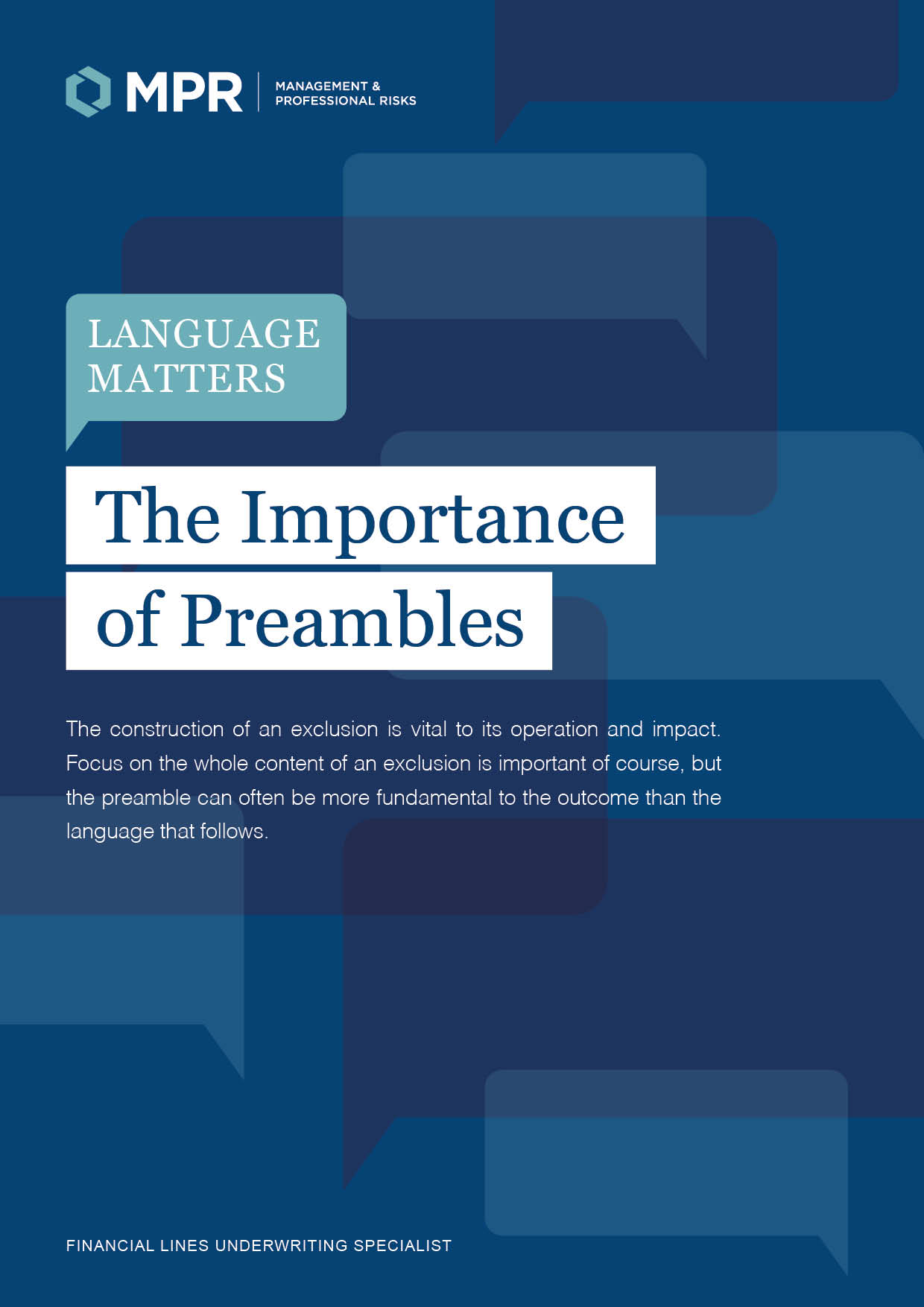The construction of an exclusion is vital to its operation and impact. Focus on the whole content of an exclusion is important of course, but the preamble can often be more fundamental to the outcome than the language that follows.
For many years, “for” exclusions have been a staple ingredient of Directors & Officers (“D&O”) policies, for example:
The Insurer shall not be liable for Loss on account of any Claim
– for Personal Injury or Property Damage;
In an attempt at plainer English this may sometimes be written as “seeking remedy for”. Insurers and lawyers generally use the word “for” to mean a claim for, or on account of, the actual thing itself (personal injury or property damage in this case. A “Claim for Personal Injury” therefore means a personal injury claim by the victim or dependants. Taken literally, “a claim for” can mean “a claim seeking”, which can create a nonsense if read as an exclusion of “a claim seeking personal injury.” The ‘seeking remedy for’ preamble is therefore clearer than the more common ‘for’ approach.
The point at which the mechanics change more radically is when the preamble switches to an ‘absolute’ version i.e.:
The Insurer shall not be liable for Loss on account of any Claim
– based upon, arising from or in consequence of Personal Injury or Property Damage.
In the ‘for’/ ‘seeking remedy for’ environment, an indirect or ‘downstream’ claim can sidestep the exclusion. For example, a claim by shareholders that the share price, reputation or solvency of a company has been damaged as a result of personal injury that has taken place (for example, deaths of workers in a factory). When considered against the ‘absolute’ preamble however, the whole claim is bound to fail.
The use of the personal injury example is quite deliberate in that it demonstrates the impact of a preamble most vividly and is perhaps the easiest to contextualise. In many scenarios, health and safety claims against directors and officers would be brought under Section 7 (which imposes a duty upon employees to take reasonable care for the health and safety of themselves and of other persons who may be affected by their acts and omissions at work) and Section 37 (directors or senior managers can be prosecuted for breaching section 37 if a health and safety offence was due to their consent or connivance or attributable to their neglect) of the Health and Safety at Work etc. Act 1974. These claims will be ‘for’ breach of duty and/or breach of statute but will be based upon, arising from or in consequence of personal injury or property damage. The impact of the preambles are quite clear and will lead to potentially very different outcomes.
There is a wider debate to be had about whether D&O policies are the most suitable place for health and safety events and many claims are handled more appropriately under the Public Liability or Employers Liability policies, even though that route might not always be fool proof. Notwithstanding, it is difficult to row back on this, largely because it has been used as one of the most obvious and powerful sales tool of D&O insurers in the private company market for well over 20 years. It also serves as a useful reference point on the impact exclusionary language can have.


